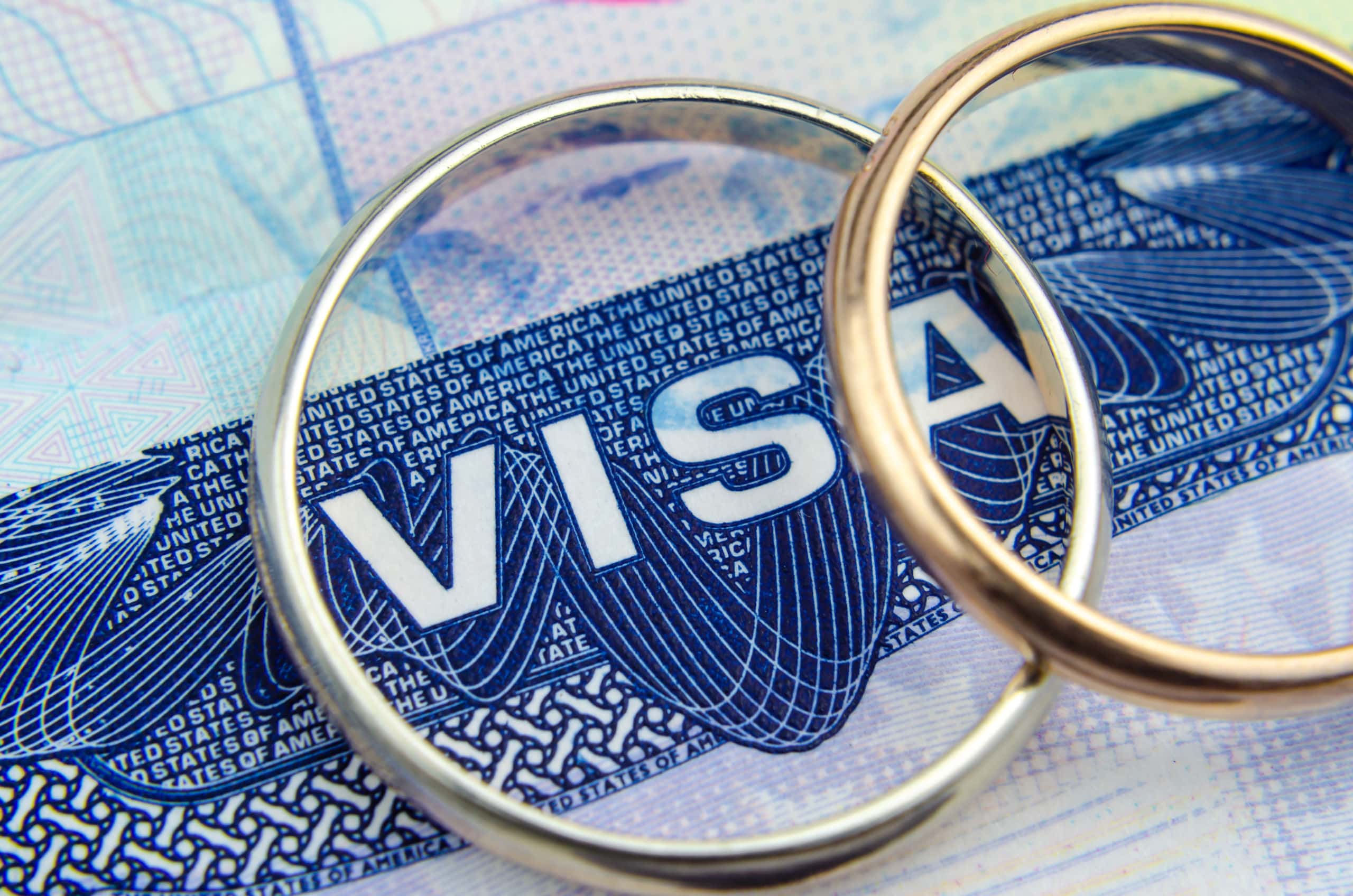Published November 9, 2020
By: Richard Hanus, Esq.
Obtaining lawful permanent residence, or green card status, by way of a genuine, bona fide marriage to a U.S. citizen or a lawful permanent resident is one of the more commonly used processes under U.S. immigration law. Much of the time processing of a marriage based filing remains straightforward, although a number of factors can complicate things, such as sudden changes in the law or questions surrounding the sincerity of the marriage. Other complicating circumstances include an applicant’s history of previous immigration violations or even criminal offenses. Below is a discussion of: a) options applicants may have when it comes to the location of final stage processing – i.e. a U.S. consular post overseas vs. before a Department of Homeland Security/Citizenship and Immigration Services (DHS/CIS) office in the U.S. and b) the factors most often playing a role in the application review process.
As to the location of green card processing, many applicants will have a choice, and others will not. Foreign nationals who are married to a U.S. citizen and present in the U.S. following a legal entry, will, with few exceptions, have an opportunity to have their marriage based green card filing processed in the U.S. in its entirety and without having to depart the U.S. for an interview at a U.S. embassy or consulate overseas. For eligible foreign nationals in the U.S., the process is usually initiated via the filing of a “one stop” I-130 visa petition/I-1485 Adjustment of Status submission. Even those who have overstayed or otherwise violated their visa status, may still be eligible to undergo this process. Moreover, applicants usually receive an employment authorization and advance parole travel document while awaiting the final stage of the process, an adjustment of status interview at their nearest DHS/CIS in the U.S.
Foreign nationals who marry a lawful permanent resident may have the above avenue of processing available, but with more limitations regarding overall eligibility and processing times.
Then there are foreign individuals who choose to undergo the final stage of the process at a U.S. consular post abroad or simply do not have the choice because they have simply been unsuccessful in their effort to obtain a temporary visa to lawfully enter the U.S. to visit, study or work. This class of foreign nationals will have the process started by their U.S. citizen spouse with the filing of an I-130 visa petition with a DHS/CIS office in the U.S. Following approval, the visa petition file is transferred to the U.S. Department of State’s National Visa Center, where documents are requested and vetted, and eventually forwarded to the appropriate U.S. embassy or consulate for interview in the foreign spouse’s home country. At the consular immigrant visa interview the foreign national applicant will undergo questions about their marriage, and any other issues impacting eligibility such as a criminal past, inconsistencies in previous visa applications as well as sincerity of marriage.
As to substantive legal requirements, the most prominent rule is that the marriage at issue must be premised on a sincere, genuine relationship, with the parties intending to live together in the U.S. in a marital residence. Marriages entered into for the primary purpose of facilitating an immigration benefit are illegal, and will lead to a denial of the filing. Questions inquiring into the sincerity of the marriage are usually presented at the final stage interview, whether in the U.S. or abroad. If suspicions arise, the couple will usually have a chance to respond with additional evidence to address any outstanding concerns.
Other common legal issues impacting application, as noted above, are previous immigration violations, criminal offenses, and the financial health and income of the petitioning spouse
Finally, if the marriage at issue was entered into less than 2 years prior to the foreign national’s green card issuance, that first green card will only be valid for 2 years. From there the parties will be required to submit Form I-751 to US DHS/CIS to remove the conditional 2 year basis on the green card, and once again undergo an assessment of the sincerity of the underlying marriage. Newly approved green card holders who have been married more than 2 years will be issued unconditional, 10 year renewable green cards.
If you are looking for guidance on the best option to pursue in your particular marriage based immigration case, be sure to consult an experienced and reputable attorney, such as Richard Hanus of the Law Offices of Richard Hanus.
PUBLISHED November 9, 2020– “IMMIGRATION LAW FORUM” Copyright © 2020, By Law Offices of Richard Hanus, Chicago, Illinois
Also check out these other articles related to common immigration questions
How to get a green card for your child
How to get a green card for your parent
How to get a green card through your job

